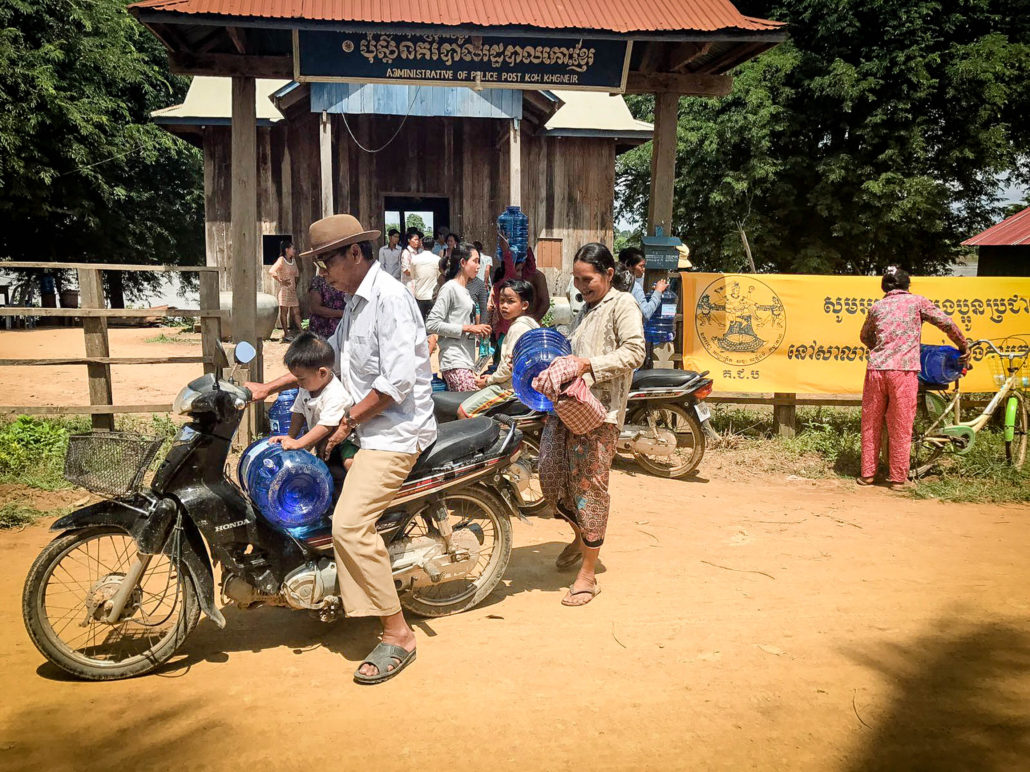This Water Festival, amid splashy fun and communal gatherings, Myanmar will welcome not only the Myanmar New Year, but also the beginning of the UN International Decade (2018-2028) for Action – Water for Sustainable Development.
According to UN projections, by 2025, half of the countries across the world will face water stress or outright shortages. By 2050, as many as three out of four people could be affected by water scarcity[1]. The new Decade, in continuation of the ‘Water for Life’ Decade (2005-2015), will focus on sustainable development and integrated management of water resources for the achievement of social, economic and environmental objectives[2].
Resolving water, sanitation, and hygiene (WASH) challenges in Myanmar, as well as other Asian countries where rural communities are suffering from a lack of access to clean water, is key for Lien AID, whose mission is to improve the health and well-being of last-mile communities in Asia by enabling sustainable access to clean water and sanitation.
Just last week, Lien AID concluded a month-long experiential public exhibition in Singapore titled Windows of Hope. Held in three public locations from March 20 to April 8, the exhibition allowed the public a unique chance to journey into rural Myanmar and Cambodia through virtual reality (VR) technology and physical installations, and see for themselves the region’s water challenges and what is being done to resolve them. The exhibition will continue to be open to companies who wish to host it in their premises.

A participant viewing the virtual reality video during the exhibition at 313@Somerset
Mr. Koh Lian Hock, CEO of Lien AID said: “Through the immersive 360° VR experience in Windows of Hope, we hope that more people will gain a better understanding of the impact of water challenges in our neighbouring countries. It takes collective effort across sectors – from governments to corporations, individuals, non-profits and academia – to solve the problem of sustaining access to clean water for the rural communities.”
In 2016, Lien AID launched a pilot clean water project in Tetma village, Mandalay, which consisted of a gravity-fed piped water system that distributes water from an existing tube well to shared water points in the village. Last year, Lien AID launched another pilot initiative in five villages across three townships in the Ayeyarwady region, enabling an estimated 3,866 villagers to gain improved access to clean water. In addition, the communities were also engaged through workshops on basic rural water management and hygiene, in an effort to raise their capacity and improve the sustainability of the project.
This year, Lien AID will continue to partner with local governments, civil society organisations and communities in Myanmar to improve overall WASH standards in the villages, as well as work on fostering institutional collaborations amongst government and non-government partners to meet the national 2030 WASH goals.
“The challenge often lies in understanding how to adapt solutions for specific locations, socio-political contexts and WASH issues, and ensuring sustainable outcomes. One key success we have achieved in Myanmar would be the strong working relationships that we have forged with our local partners, such as the Department of Rural Development, local civil society organisations and community leaders. These partnerships have enabled us to co-create solutions to enable access to clean water and sanitation for last-mile communities,” added Mr. Koh.
Lien AID first launched Windows of Hope last year, bringing it to various organisations in Singapore – AECOM, Allen & Gledhill, Arup, Asia-Europe Foundation, Credit Suisse, Ernst & Young and Expedia. More information on Windows of Hope can be found at http://www.lienaid.org/windowsofhope.
A version of this press release was published in Myanmar Business Today.



































